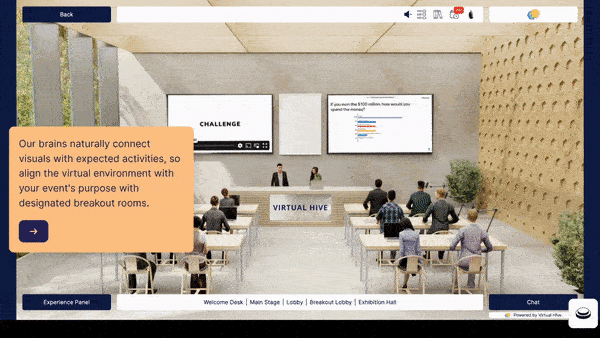Enabling Healthcare Professionals to Thrive in a Cookieless Digital Landscape
With Google's announcement to phase out third-party cookies by the start of 2024, healthcare marketers are facing a pivotal moment in digital advertising. The ability to effectively target healthcare providers (HCPs) without relying on third-party cookies presents a unique challenge for the healthcare industry. However, amidst this transformation, the concept of centralised knowledge sharing emerges as a powerful solution. By leveraging centralised platforms, healthcare providers can access a wealth of information, collaborate, and stay informed, all while maintaining data privacy and regulatory compliance.
"Starting in early 2024, Google plans to migrate 1% of Chrome users to Privacy Sandbox and disable third-party cookies for them, the company announced today. Google’s plan to completely deprecate third-party cookies in the second half of 2024 remains on track" (TechCrunch, 2023)
Google has recently unveiled its strategy to transition Chrome users to Privacy Sandbox, a privacy-focused alternative, starting in early 2024. In this initial phase, approximately 1% of Chrome users will be migrated to Privacy Sandbox, and third-party cookies will be disabled for them. This step is part of Google's larger plan to completely phase out third-party cookies in the second half of 2024. The company is committed to implementing these changes, aiming to enhance user privacy while still providing effective advertising solutions in the evolving digital landscape.
Embracing the Shift to Centralised Knowledge Sharing
In the face of a cookieless future, healthcare marketers must recognise the immense potential of centralised knowledge sharing. This paradigm shift prioritises a collaborative approach, empowering HCPs with easy access to centralised platforms that foster information exchange, professional collaboration, and continuous learning. Through these platforms, healthcare providers can access clinical guidelines, research papers, industry news, and emerging trends, all in one centralised location. This eliminates the need to rely solely on third-party cookies for targeted information dissemination.
If HCPs does not have access to streamlined information in a dedicated digital hub, providing HCPs with a wealth of up-to-date information from Pharma and Medico companies, they most likely will look elsewhere for information, which could ultimately translate to a lost partnership.
Centralised platforms offer virtual spaces where HCPs can connect, collaborate, and share insights with their peers. These platforms facilitate discussions, forums, and online communities where professionals can exchange knowledge, seek advice, and collectively problem-solve. By breaking down geographical barriers, healthcare providers can tap into a global network of expertise and foster a culture of shared learning.
"Regulated companies must master the art of threading the compliance needle, deftly navigating the intricate web of regulations while providing the necessary information and training to empower their teams and allies." (Tobias Quistorff-Refn, CCO at Virtual Hive).
By shifting the focus to centralised knowledge sharing platforms, Pharma unlock a wealth of authentic data and foster collaboration among healthcare professionals. These platforms become the backbone of the future content -and product strategy, empowering HCPs with up-to-date information, peer-to-peer collaboration, and continuous learning opportunities.
Through these channels, Pharma gain valuable insights into HCP preferences, interests, and challenges. Pharma companies can understand how HCPs engage with content, stay updated on medical advancements, and seek personalised experiences. This invaluable knowledge allows Pharma to tailor their communications and deliver the most relevant and impactful messaging to HCPs while making more informed decisions going forward.
Continuing Education and Professional Development
In a cookieless digital landscape, centralised platforms become essential for HCPs' continuous education and professional development. These platforms can host webinars, virtual conferences, live 1:1 meetings, and online courses, providing access to high-quality educational content. Through personalised recommendations and tailored learning paths, healthcare providers can stay abreast of the latest advancements in their field, furthering their expertise and enhancing patient care.
Sceptics will likely come to the conclusion that the differentiation to popular video conferencing tools is not present thus continue to only focus on physical conferences spiced with remote screen sharing. However, there is some key differences that benefit both Pharma and HCPs, which this article sums up.
Robust security measures and compliance protocols ensure that HCPs' personal information and patient data remain protected. Adhering to regulatory frameworks, such as GDPR, these platforms build trust by offering a secure environment for information exchange.
To fully realise the potential of centralised knowledge sharing, platforms should seamlessly integrate with existing systems, such as CRM, to ensure a seamless flow of information, ultimately enhancing efficiency and accuracy in patient care.
"It's not about relying on fleeting cookies or impersonal targeting methods. It's about building lasting relationships, facilitating knowledge exchange, and providing HCPs with the tools they need to thrive in their professional journeys." (Andreas Høgsberg, CEO at Virtual Hive).
Conclusion: Navigating the Cookieless HCP-landscape
As we navigate the cookieless digital landscape, centralising knowledge sharing for HCPs emerges as a transformative solution. By embracing centralised platforms, healthcare providers can access a vast repository of information, collaborate with peers, and nurture continuous learning. This new era prioritises data privacy, security, and seamless integration with existing systems.
Establishing and maintaining trust requires transparent and ethical communication practices. Pharma companies must prioritise transparency, provide comprehensive and unbiased information, and engage in open dialogue with HCPs to foster long-term trust and collaboration - something that is not achieved through a regular website.
To learn more about HCP engagement and future Pharma knowledge sharing, go to this article about the challenges of HCP training.

